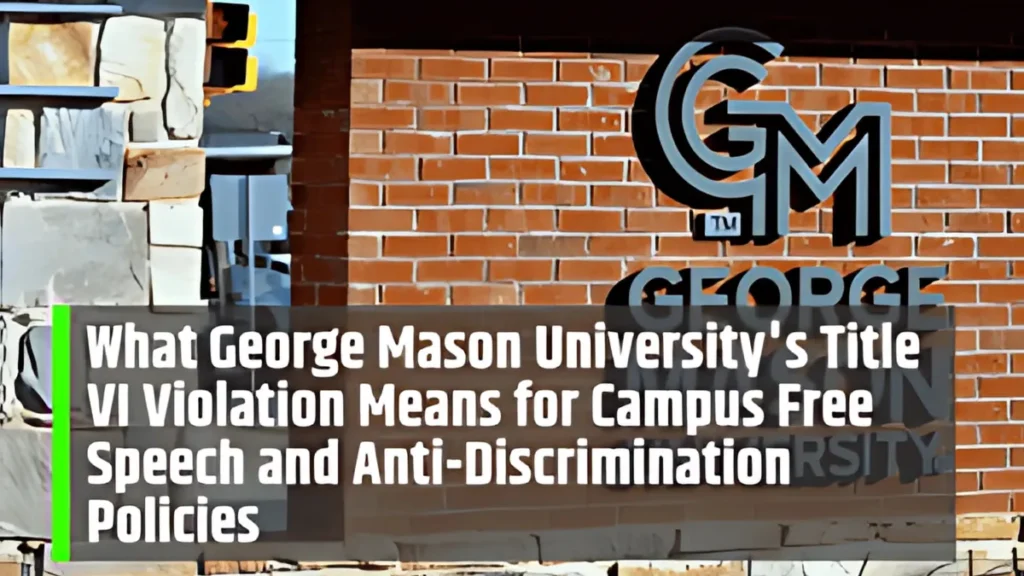George Mason University (GMU) is at the center of a national debate after the U.S. Department of Education’s Office for Civil Rights (OCR) ruled that the school violated Title VI of the Civil Rights Act of 1964. The finding relates to the use of race and identity factors in hiring and promotion, sparking questions about the future of diversity, equity, and inclusion (DEI) initiatives, free speech, and anti-discrimination policies across U.S. campuses.
What Happened at GMU?
On August 22, 2025, federal investigators determined that GMU’s hiring and promotion practices improperly considered race and other immutable characteristics. The OCR required the university to:
- Revise policies to remove race-based criteria,
- Provide annual compliance training, and
- Issue a public statement affirming adherence to Title VI.
The Justice Department also launched a separate investigation into possible discrimination in admissions, scholarships, and student services.
GMU leadership has pushed back. The university president’s attorney rejected the demand for an apology, insisting that DEI initiatives were both legal and essential for creating inclusive learning environments.
Why This Matters for Free Speech and DEI Programs
DEI Programs Under Scrutiny
Many diversity offices, scholarships, and faculty initiatives at GMU now face heightened review. While programs remain in place, some have already been scaled back to avoid conflict with federal mandates.
Free Speech Concerns
The ruling may discourage open conversations about race and equity on campus. Faculty and students fear increased monitoring of classroom discussions and extracurricular activities tied to DEI.
Governance and Political Pressure
GMU’s Board of Visitors, made up entirely of political appointees, now has greater influence over compliance decisions. Faculty worry this could weaken shared governance and academic independence.
National Ripple Effect
The GMU case sends a warning to other universities. Schools across the country are reviewing diversity-related hiring, promotion, and scholarship programs to avoid federal violations.
Key Impacts at a Glance
| Area | Impact on Campuses |
|---|---|
| DEI Initiatives | Increased legal risk and possible rollbacks |
| Free Speech | Greater risk of self-censorship on sensitive issues |
| Hiring Practices | Race-conscious criteria removed or restricted |
| Faculty Governance | Political boards gaining more control |
| Student Support | Inclusion-focused programs may shrink |
Conclusion: The Title VI ruling against George Mason University is more than a local compliance issue—it’s a national turning point for how U.S. campuses balance diversity initiatives, anti-discrimination laws, and free speech rights. While DEI programs remain active for now, the case highlights growing political and legal pressure on higher education.
Disclaimer: This article is for informational purposes only. For official updates, students and faculty should consult the U.S. Department of Education and GMU’s official communications.
Read More:
- How Trump Administration Policies Are Reshaping the Future of U.S. Higher Education
- US Student Visa Rules Get Stricter in 2025: What International Students Must Know
- US Campuses Fall 2025: How Politics and Federal Policies Are Changing Student Life
- Federal Court Blocks DEI Ban: What It Means for Schools and Colleges in 2025
- Social Security September 10, 2025 Payment: Exact Amount Beneficiaries Will Receive





